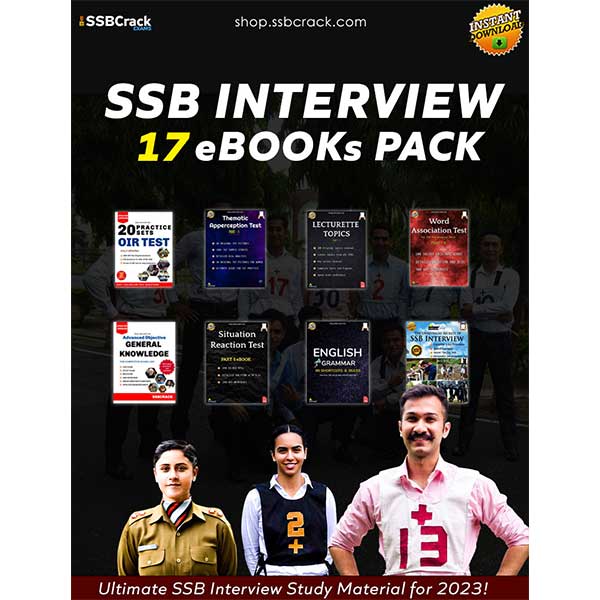50 Word Association Test Examples with Answers 2024
The Word Association Test is not just a psychological assessment tool but a mirror reflecting the inherent qualities, beliefs, and values of an individual.
February 5, 2024
Updated: February 5, 2024

Word Association Test (WAT) is a psychological tool used in the selection process of various professions, notably in the Services Selection Board (SSB) interviews for defence forces around the world. It aims to unveil the subconscious mind of the candidates by asking them to respond to a single word with the first thing that comes to their mind.
The technique is straightforward yet revealing, as it provides insights into the personality, traits, and thought processes of the individuals. The significance of WAT in understanding cognitive and emotional responses remains paramount.

These responses are later analyzed by psychologists to determine various psychological traits such as leadership qualities, stress management, decision-making capabilities, and team spirit.
Tips for WAT
- Be Genuine: The first and foremost tip is to be authentic. Your responses should reflect your true self and not what you think the assessors want to hear.
- Practice Makes Perfect: Regular practice can significantly improve your response time and quality. It helps in preparing your mind to react swiftly and appropriately.
- Stay Positive: Always try to associate positive thoughts with the words. Positive responses are indicative of a positive mindset, which is a desirable trait in any profession.
- Avoid Stereotypical Responses: Try to be unique in your answers. Stereotypical responses might indicate a lack of original thought.
- Keep It Short and Relevant: Your response should ideally be a short phrase or a sentence that is directly related to the word given.
- Enhance Your Vocabulary: A good vocabulary can help you come up with more appropriate and expressive responses.
50 Word Association Test Examples with Answers
Here are 50 examples of word association tests, along with sample responses that reflect positive traits and qualities sought after in candidates.
- Challenge – Opportunity to grow and learn.
- Failure – Stepping stone to success.
- Teamwork – Collaborating for common goals.
- Leader – Inspires and motivates others.
- Stress – Catalyst for learning and adaptation.
- Enemy – An opponent to respect and understand.
- Decision – Based on wisdom and courage.
- Family – Support system for life.
- Adventure – Exploring and overcoming fears.
- Discipline – Foundation of success.
- Honesty – Backbone of trust.
- Dream – Blueprint of my future.
- Fear – To be faced and conquered.
- Joy – Celebrating every little success.
- Pain – Temporary, lessons are permanent.
- Love – Unconditional support and care.
- Success – Result of hard work and perseverance.
- Courage – Acting despite fear.
- Peace – Harmony within and around.
- Anger – To be controlled and managed.
- Hope – Keeps us moving forward.
- Risk – Necessary for growth.
- Patience – Key to achieving goals.
- Respect – Earned through actions.
- Freedom – To choose and act wisely.
- Sacrifice – For the greater good.
- Trust – Foundation of relationships.
- Adventure – Path to self-discovery.
- Goal – Drives my actions and focus.
- Strength – Comes from overcoming challenges.
- Weakness – Areas to improve and strengthen.
- Responsibility – Duty towards self and others.
- Passion – Fuels my dreams and ambitions.
- Learning – Lifelong journey.
- Change – Embrace for betterment.
- Equality – Respect and fairness for all.
- Friendship – Bond beyond words.
- Happiness – In simplicity and gratitude.
- Leadership – Guiding by example.
- Innovation – Key to modern challenges.
- Adventure – Seeking new experiences.
- Motivation – Driving force towards goals.
- Discipline – Pathway to achievement.
- Challenge – Opportunity for growth.
- Resilience – Bouncing back stronger.
- Success – Journey, not a destination.
- Ambition – Aspires to achieve more.
- Courage – Facing fears head-on.
- Optimism – Seeing the best in situations.
- Integrity – Doing right when no one’s watching.

Conclusion
The Word Association Test is not just a psychological assessment tool but a mirror reflecting the inherent qualities, beliefs, and values of an individual. In the context of SSB and similar selection processes, it’s a crucial element that helps in identifying suitable candidates who not only possess the necessary skills but also embody the ethos and values of the organization.
By understanding the nuances of WAT and preparing accordingly, candidates can significantly improve their chances of success in such competitive environments. The examples provided above serve as a guide to forming positive and constructive responses that can help in painting a favorable picture of a candidate’s personality and thought process.




